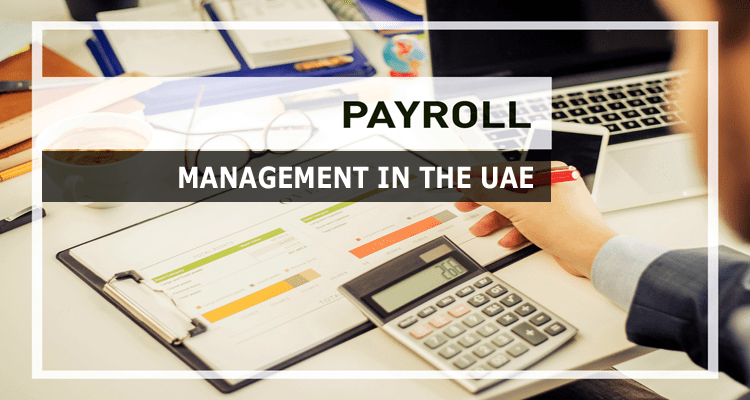Tips for International Businesses on Payroll Management in the UAE
Over the years, the United Arab Emirates (UAE) has emerged as a leading business centre inviting businesses from across the globe to set up commercial operations in the country. Expatriates looking to expand their business find the environment in the UAE conducive to growth. The reforms introduced over the past few decades have paved the way for this economic turnaround. International businesses are assured of smooth transactions concerning business and trades policies, infrastructure and facilities and global connectivity.
Also Read: 8 Main Benefits of Outsourcing Accounting Services in Dubai
UAE is also known to attract a highly skilled and hardworking workforce. And these combined factors give the UAE an edge over other prospective locations as well as contribute to its exponential success as an international business hub.
However, despite the ease of business, other modalities necessary for smooth operations remain complex and require special attention. Companies still have to deal with payroll issues such as staffing and retaining skilled workers. Even though rules and regulations regarding businesses are straightforward, in the UAE, business houses have to ensure that their companies comply with the employment and labour laws of the land. Any deviation could put the business at risk. And it is for that reason that companies must consider hiring payroll services in UAE.
Also Read: Company Formation in Dubai: A Step by Step Complete Guide to Start a Business in Dubai
Payroll Services
If you are desirous of starting a new business or want to shift operations of an existing overseas business to the UAE, you will benefit from payroll services in Dubai. Trust us on that and read on to know why we recommend accounting and audit firms in Dubai, for international businesses.
Also Read: 4 Tips for Diversifying Your Business in Dubai
Employment Considerations
Every business operating from within the UAE is automatically governed by the employment and labour legislation of the country. Though category-based exemptions are applicable were permissible on the whole the rules and regulations apply equally to nationals and foreigners alike.
The country’s labour law directs every employee to put their signature on a labour contract when the employment contract is signed. The former document needs to be submitted to the Ministry of Labour of the UAE, where it is registered. It is a mandatory requirement especially for foreign nationals applying for an employment visa. Payroll services are equipped for getting this done.
Also Read: 7 Tips to Increase Your Business Social Media Following in Dubai
Work Schedules
Private companies are at liberty to set their own work schedules, but public sector undertakings work from Sunday to Thursday, with Friday being a holiday. Workday hours are fixed at eight hours, which adds up to forty-eight workweek hours. However, companies are allowed to deviate from this standard work-format. Some factors can alter the working hours such as type of business and the kind of job that individuals are hired to accomplish.
However, companies are required to compensate workers who work longer hours and exceed the forty-eight workweek hours. Such workers are entitled to overtime pay, based on the number of extra hours that they put in.
Since Friday is a public holiday in the UAE, any employee who works on a Friday is eligible for a weekly off, on another day of the week. Companies may choose to compensate such employees with extra pay, instead of a weekly off. It is entirely up to the company’s discretion.
Women in the workforce are not permitted to work on night shifts – between 22:00 – 07:00 hours. However, the rule does not apply to women employed in the medical field, and those engaged in technical or managerial roles.
Also Read: 17 Secrets Nobody Tells You About Working in Dubai
Compensation and Severance Considerations
Payroll accounting services in Dubai are rather hassle-free and straightforward. Companies running businesses from the UAE are obligated to pay wages to their employees via the Wages Protection System, which is a salary transfer system. Employers must use this system to remit salaries to the staff within two weeks of a pay period. Outsourcing this job to a payroll service would ensure that there are no hitches.
There is no minimum wage slab and remuneration in the UAE is generally based on the employee’s qualification, experience and skill level. New employees are on probation for a period not exceeding six months.
The law entitles employees terminated from service to receive termination pay from their employer, but the rule is not applicable in all circumstances. For instance, termination of employment due to a breach of company policies, resigning from a position before the full term of a contract or a failure to offer proper notice before leaving can be reason enough for refusal of termination pay.
On the other hand, the criteria for severance pay are clearly defined and safeguards employees interests. Workers receive an adequate sum from the company that employed them. The severance package is calculated based on the years of service of an employee, at the time of quitting.
Severance pay is equal to 21 days of salary for each year for the first five years of employment, and 30 days salary for every extra year, beyond five years, is paid with the maximum pay-out capped at 24 months.
Also Read: How to Become a Data Analyst in Dubai?
Tax and Withholding Considerations
The country’s labour legislation regulates businesses operating in/from the UAE. Hence they have no federal commitments on retention tax or tax withholdings. The UAE does not levy income tax on individuals and corporations, but the Ministry of Finance collects VAT of 5%. Though the government taxes an exemption to the rule and industries such as branches of foreign banks and businesses involved in oil and gas.
Statutory pension contributions are fixed at 5% and applicable only for citizens of the UAE. Foreign nationals employed in the country are neither entitled to receive pension benefits nor contribute towards it.
Also Read: Top 10 Best Recruitment Agencies in Dubai
Leave Regulations
The Labour law in the UAE has well-defined leave-entitlement regulations of employees. By this law, all employees are entitled to leave for purposes such as sickness, maternity, holiday and vacation. Additionally, anyone employed in an organisation for over six months to a year is eligible for two days of paid leave each month. Employees who are on the payroll for over a year have the benefit of paid leave amounting to 30 days. Apart from these, the law allows seven days of paid holidays.
Employees can avail 15 days fully-paid sick leave, once they complete three months in a company. Employees going on sick leave beyond the permitted number of days will either have to forfeit salary for that period or receive partial payment, depending on the company’s policy. Expectant mothers are granted 45 days maternity leave.
Also Read: Top 20 Highest Paid Jobs in Dubai






